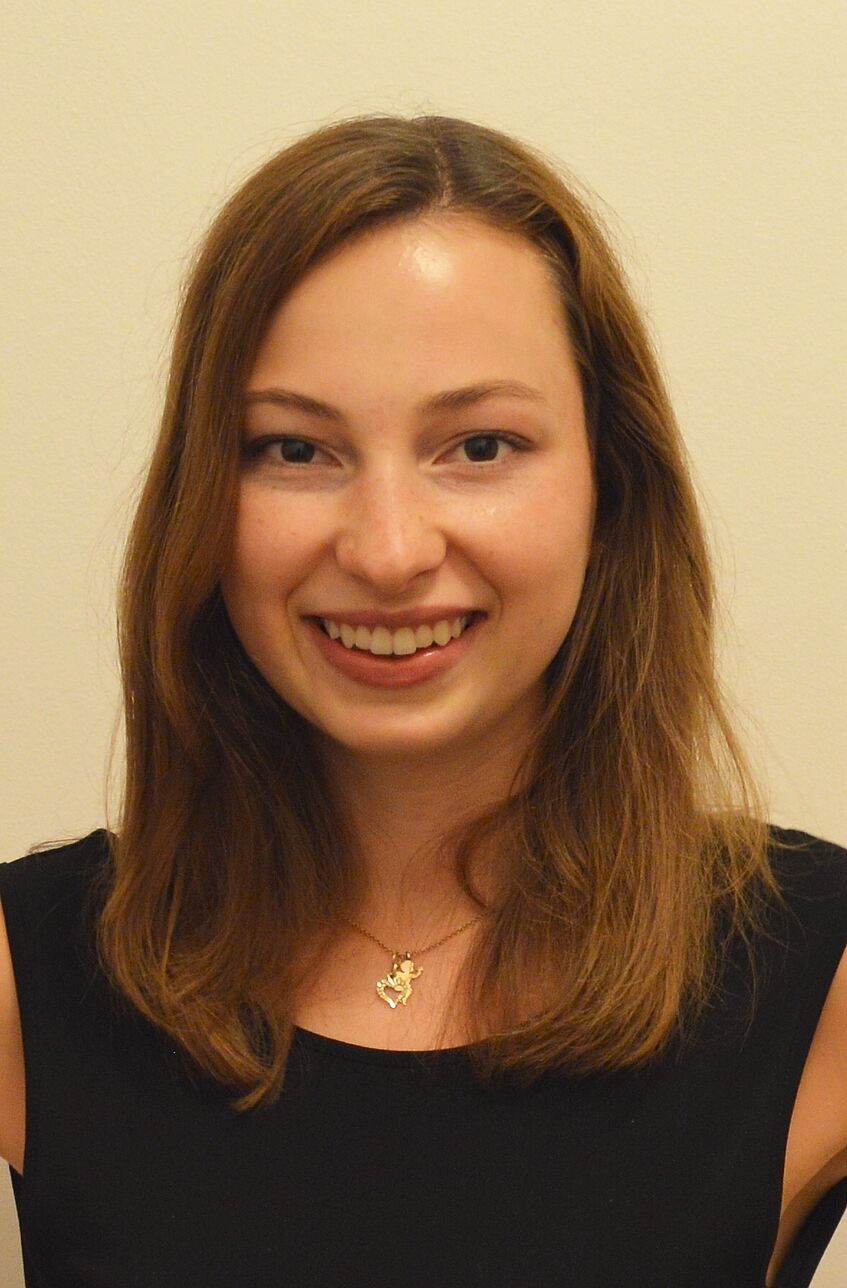Julia Westermayr
Supervisor: Leticia González, University of Vienna
Co-Supervisor: Chris Oostenbrink, University of Natural Resources and Life Sciences, Vienna

Details
Start of the project: 01.09.2019
Title of the project: Machine Learning for Excited-State Molecular Dynamics Simulations
Finishing Date: 24.09.2020
Description of the PhD project:
My PhD project is funded by the uni:docs fellowship of the University of Vienna. I am working on the development of machine learning potentials to speed-up nonadiabatic molecular dynamics simulations. To this aim, my co-workers and I have developed different algorithms that allow to efficiently generate a training set for machine learning for excited-states and to pre-process data in order to make them learnable. The successful development of this method was recently published and employed for a small test system, the methylenimmonium cation (1). The study shows that reproducing nonadiabatic molecular dynamics simulation is possible with machine learning at a fraction of the original computational time and that long simulations are out of reach with conventional methods are feasible with machine learning. The development and improvement of machine learning algorithms is an ongoing work and the scopes and possibilities of machine learning models for excited states are currently explored.
The second goal of my PhD thesis is to use the new method in order to investigate the excited-states of tyrosine and its photodynamics. The aim is to shed light on the first steps of the mechanisms leading to dityrosine cross-linking – a modification often found in proteins – that is for example related to skin ageing or blindness. Since only assumption are available for the processes that induce dityrosine cross-linking and controversial results of the excited-state dynamics of tyrosine exists, it is important to find out whether the photodynamics of tyrosine is at the origin of dityrosine formation or not.
(1) J. Westermayr et al., Chem. Sci. 2019,10, 8100-8107
Related Links: https://theochem.univie.ac.at/member/?uid=78
Link to Publications by Julia Westermayr
Lab Rotation (2 weeks): Host: Chris Oostenbrink, Topic: "First steps towards the use of neural networks for accurate molecular dynamics simulations of metalloproteins"; 02/2020
Internship abroad: planned for 01.03.-31.05.2020 at the Institute of Software Engineering and Theoretical Computer Science, TU Berlin. Host: Prof.Dr. Klaus Robert Müller.
The stay had to be terminated after 2 weeks due to the the travel restrictions during the Covid19 Pandemic.
Title of the planned internship project: Generally applicable machine learning photodynamics package
Place after Graduation: 3year FWF Schrödinger-Fellowship (including return phase) at the University of Warwick, Dept. of Chemistry, Theoretical Surface Chemistry Group, Host: Reinhard Maurer. From Fall 2022: Assistant Professor at the Faculty of Chemistry at the University of Leipzig. Germany.
In 2021, Julia Westermayr received the "Sigrid Peyer-Imhoff Promotion award" for her PhD thesis. The prize aims to promote young scientists in the field of Theoretical Chemistry.
In June 2022, Julia was invited to the 71st Lindau Nobel Laureate Meeting and held her presentation: Discovering Photochemical Reactions With Machine Learning.
In July 2022, Julia received the Bank Austria Recognition Prize for her work on tyrosine, published in Nature Chemistry: Deep learning study of tyrosine reveals that roaming can lead to photodamage | Nature Chemistry
Wiener Forscher beobachteten fliegenden Atom-Positionswechsel (apa.at)
Abstract of the PhD thesis
File size: 408 kB
Alumni brochure contribution by Julia Westermayr
File size: 797 kB
